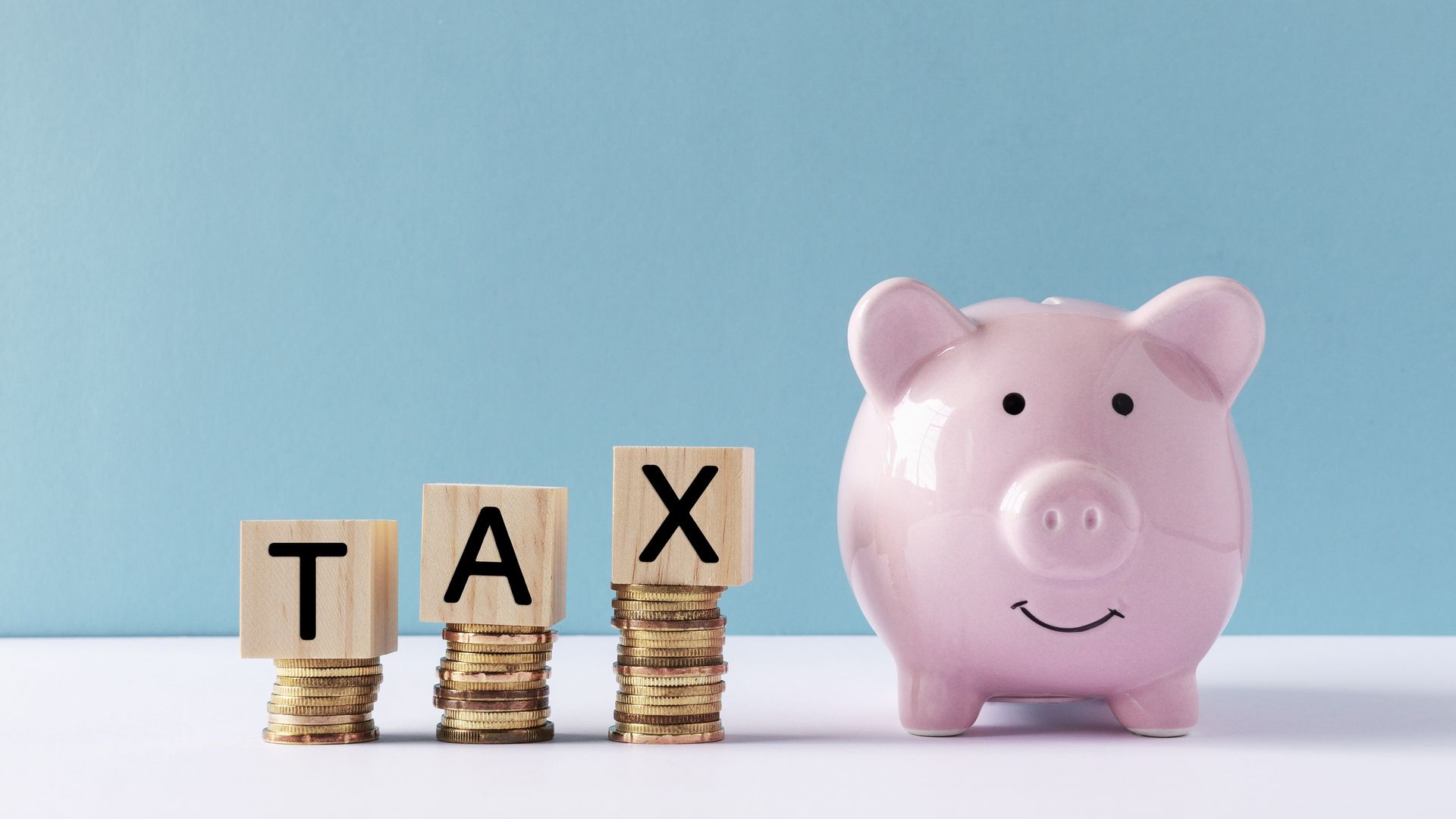Four Steps to Help You Have a Comfortable Retirement
Planning for retirement can be daunting, but the plan is what makes it more likely you’ll get to spend retirement relaxing and doing the things you love.


One of the biggest fears people have when planning for their retirement is running out of money once they get there. Even those who have saved diligently for most of their lives worry whether or not they will be able to live out a comfortable retirement.
According to a recent Bloomberg survey, investors believe they will need at least $3 million in order to retire comfortably. But a comfortable retirement depends on more than just the amount of dollars you have saved. Don’t panic just yet. Here are four steps you can take now to help you enjoy your golden years.

1. Save Early and Often.
Retirement may seem far off if you are just starting your career, but it is never too early to start thinking about and preparing for your financial future. Establishing good money-saving habits early in life will make it easier for you to save throughout your career. Many retirees who are living out a comfortable retirement owe their success to those good early saving habits. Because you are giving yourself more time to save by starting early, you can put away less at a time. Meaning, you don’t always have to choose between saving for retirement and doing something fun with your money.
If you're not sure where to start, a financial adviser can help you map out a plan, which can make the difference between just scraping by and living out a comfortable retirement.

2. Have a Tax Plan.
One of the most important steps on the road to retirement is having a tax plan. This goes beyond simply filing your taxes every year. The further ahead you can plan for your tax situation, the better chance you have at reducing your tax burden.
When it comes to retirement accounts, there are tax-exempt accounts like Roth IRAs and Roth 401(k)s and tax-deferred accounts like 401(k)s or traditional IRAs. Both kinds of accounts are helpful in saving for your retirement. The major difference between the two occurs when taxes are taken out. Those who are just starting out in their careers often rely mostly on tax deferred accounts. These accounts provide an upfront tax break on your initial contributions. The taxes are delayed, or deferred, until you begin taking money out of the account in retirement.
Tax-exempt accounts are the opposite. Rather than paying taxes when you withdraw money, you are instead required to pay taxes on your contributions up front. The contributions you put into these accounts will grow tax-free over time and you will be able to withdraw the money tax-free in retirement. These future tax benefits can be a huge relief for retirees, many of whom will be living on a reduced or fixed income.
Remember to take into account required minimum distributions, or RMDs, which are forced distributions from your tax-deferred accounts like a traditional IRA or 401(k). You must start taking RMDs by April 1 of the year after you turn 73. So, if you celebrate your 73rd birthday in August of this year, then you must take the RMDs by April 1, 2024. Every year after, you must take them by Dec. 31.

3. Assess Your Risk.
Consider the risks you are taking with your investments. For example, if you start the year with $1.25 million in your retirement accounts, it could look a lot different just months later depending on how much risk you're taking on. Ask yourself, what is my comfort level?
We sit down with clients and ask them what their risk number is. Between 1 and 100, with 100 being the most aggressive you can be, where do you fall? If you tell me you are a 40, I would consider you pretty conservative. Do your current investments reflect that risk?
Many people don’t realize that they are invested in a way that is much more aggressive than they are comfortable with. You won’t understand what your risk looks like until you have a plan in place. From there, you can plan out the risk that you are comfortable with.

4. Be Prepared to Shift to Spending.
Once you enter retirement, you transition from being a saver to a spender, and while many people can spend their entire lives being a great saver, they might not know how to handle being a spender in their golden years.
But it is critical you don’t overspend. Spending too much money or racking up credit card debt when you’re still working is bad enough, but at least you have a steady income every month that can help pay it off. In retirement, your income options are much more restricted. Overspending can easily result in running out of money before your retirement ends, which may force you to rejoin the workforce.
Bottom line, the sooner you get started, the better. Planning for retirement can be intimidating and stressful but it doesn’t have to be. Instead of panicking, be proactive and create a plan for your retirement. Working with a financial adviser can help you come up with the right plan for these life-altering decisions.
This article was written by and presents the views of our contributing adviser, not the Kiplinger editorial staff. You can check adviser records with the SEC or with FINRA.

Tony Drake is a CERTIFIED FINANCIAL PLANNER™and the founder and CEO of Drake & Associates in Waukesha, Wis. Tony is an Investment Adviser Representative and has helped clients prepare for retirement for more than a decade. He hosts The Retirement Ready Radio Show on WTMJ Radio each week and is featured regularly on TV stations in Milwaukee. Tony is passionate about building strong relationships with his clients so he can help them build a strong plan for their retirement.
-
 Stock Market Today: S&P 500, Nasdaq Finish the Week at New Highs
Stock Market Today: S&P 500, Nasdaq Finish the Week at New HighsDell was one of the best-performing stocks Friday after the PC maker hiked its dividend by 20%.
By Karee Venema Published
-
 10 Best Affordable Cities for Homebuyers on a Budget
10 Best Affordable Cities for Homebuyers on a Budget10 Best Affordable Cities For Homebuyers On A Budget: These are the best affordable cities a median household income of 75k can afford.
By Erin Bendig Published
-
 Estate Planning for Your Aging Parents: A Delicate Balance
Estate Planning for Your Aging Parents: A Delicate BalanceProtecting assets isn’t the only goal. Managing health care and taxes are also important, as is maintaining our parents’ dignity and security.
By Justin Stivers, Esq. Published
-
 Stocks Could Remain Strong (Fingers Crossed) Throughout 2024
Stocks Could Remain Strong (Fingers Crossed) Throughout 2024Reasons for optimism: The worst of inflation appears to be behind us, the Fed could start cutting rates, and it seems we’ll avoid a hard landing or recession.
By Tony Roth, Chief Investment Officer Published
-
 Cut Your Wealth Transfer Taxes With a Family Limited Partnership
Cut Your Wealth Transfer Taxes With a Family Limited PartnershipThis estate planning tool facilitates tax-efficient wealth transfer, asset protection, legacy preservation and more.
By John M. Goralka Published
-
 Financial Planning: The Best Defense Against Financial Fear
Financial Planning: The Best Defense Against Financial FearWorried about job loss, health crises and other issues? Proactive planning, especially with a financial adviser's help, can ease your anxiety about the future.
By Frank J. Legan Published
-
 Avert a Tax Surprise in Retirement: Get Ready With a Roth
Avert a Tax Surprise in Retirement: Get Ready With a RothYour taxes in retirement might not be lower, and you could be facing a looming tax bill because of RMDs. Consider preparing now with Roth conversions.
By Andrew Drufke Published
-
 A Challenging Retirement Plan Mission: Not Impossible
A Challenging Retirement Plan Mission: Not ImpossibleA reader makes a request that at first appears not achievable, but with some maneuvering of the retirement income plan building blocks, we find it can work.
By Jerry Golden, Investment Adviser Representative Published
-
 Financial Planning Careers Are Open for Business
Financial Planning Careers Are Open for BusinessThanks in part to the Great Wealth Transfer, jobs in financial planning are expected to grow in the next decade.
By Kevin R. Keller, CAE Published
-
 What to Do With Your 401(k) When You Leave Your Job
What to Do With Your 401(k) When You Leave Your JobInstead of cashing out or leaving your 401(k) account behind, consider consolidating your savings in your new employer's plan. Here's how.
By Spencer Williams Published










